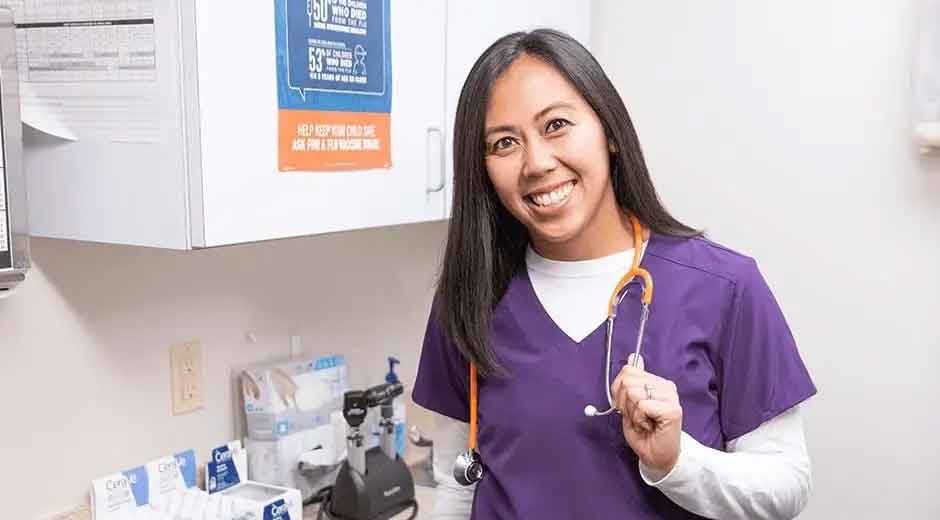Contents
- 1 Key Takeaways
- 2 The RN to BSN Pathway: A Springboard for Professional Growth
- 3 Skills Developed in RN to BSN Programs
- 4 Flexible Learning for Working Professionals
- 5 Advancing Patient Care Through Higher Education
- 6 How the RN to BSN Pathway Broadens Career Horizons
- 7 Barriers and Solutions—What to Expect as an RN to BSN Student
- 8 The Future of Nursing—Adapting to an Evolving Field
Key Takeaways
- RN to BSN programs help nurses develop wider clinical, critical thinking, and leadership skills.
- BSN education is strongly linked to improved patient health outcomes, enhanced safety, and career advancement.
- The need for BSN-prepared nurses is growing nationwide, opening more opportunities for registered nurses.
- Modern RN to BSN programs use flexible formats to help nurses balance work, life, and learning.
The RN to BSN Pathway: A Springboard for Professional Growth
The landscape of healthcare is rapidly evolving, and so are the roles and expectations for registered nurses. The transition from RN to BSN has become a respected and increasingly essential pathway for nurses who want to stay competitive, enhance their knowledge, and contribute more meaningfully within their organizations. Pursuing an online RN to BSN degree at Northern Kentucky University is a smart step for those looking to combine convenience with comprehensive education. This academic journey is designed for working nurses, providing them with the opportunity to further their education without interrupting their careers or personal responsibilities.
Healthcare employers are well aware of the benefits associated with nurses who hold a BSN degree. Many now list a bachelor’s degree as a preferred or required qualification for new hires or promotions. This shift is driven by mounting evidence that advanced nursing education leads to better patient outcomes.
Skills Developed in RN to BSN Programs
A hallmark of the RN to BSN journey is the significant expansion of a nurse’s knowledge base and skill set. These programs place a strong emphasis on evidence-based practice, research utilization, health promotion, and population health management. Coursework often delves into advanced patient assessment, public health, health informatics, ethical decision-making, and leadership in healthcare systems. By developing these competencies, BSN graduates are well-positioned to deliver excellent patient care and take initiative in quality improvement projects, as well as assume charge nurse, educator, or coordinator roles.
Significantly, the BSN curriculum enhances a nurse’s critical thinking, adaptability, and communication skills—traits that are increasingly essential as care teams become interdisciplinary and patient cases become more complex. Nurses emerging from these programs feel more confident managing complex situations, advocating for patients, and participating in healthcare innovations. BSN-trained nurses are also able to analyze and interpret the latest research, often leading efforts to implement new medical practices or contribute to policy development within their organizations.
Flexible Learning for Working Professionals
Balancing a demanding clinical job with continued education might seem overwhelming at first. However, today’s RN to BSN programs are designed to be as supportive and flexible as possible. Many leading institutions offer fully online or hybrid learning options, allowing nurses to study from anywhere and at any time. This format is especially valuable for those who juggle family obligations or work variable shifts. With asynchronous courses, self-paced modules, and integrated technology, the barriers to returning to school are much lower than they once were.
The flexibility of online programs also allows nurses to tailor their studies to focus on areas of interest or local needs, benefiting both their communities and their professional development. According to the U.S. Bureau of Labor Statistics, the employment outlook for nursing is robust, with opportunities in home health, public health, and telehealth multiplying. BSN credentials further unlock possibilities in these emerging fields, equipping nurses to respond to an aging population and rising demand for preventive services.
Advancing Patient Care Through Higher Education
Higher education isn’t just for personal benefit; it translates directly into higher-quality patient care. Research consistently shows that BSN-trained nurses help reduce medical errors, improve patient outcomes, and enhance communication within multi-disciplinary teams. With more formal training in research, data interpretation, and clinical judgment, these nurses are well-positioned to lead critical quality improvement initiatives—from reducing infections to enhancing discharge procedures. Their ability to use data and ask the right questions promotes a culture of continuous growth and high standards within healthcare organizations.
Nurses who complete RN to BSN programs also become more effective patient advocates, addressing not only disease but also the broader social and environmental factors that affect wellness. They are taught to see patients in context, collaborating with caregivers and other specialists to design truly holistic and sustainable care plans.
How the RN to BSN Pathway Broadens Career Horizons
Beyond direct care, BSN-prepared nurses gain access to a broader range of professional paths. Roles in management, informatics, case management, research, and public health education often require or favor a bachelor’s degree. Many BSN graduates choose to continue their education, earning advanced degrees such as MSN or DNP, or even pursuing leadership roles as nurse practitioners or educators. This progression leads to greater earning potential, increased autonomy, and the ability to drive genuine innovation within the workplace. According to the American Nurses Association, RN-to-BSN programs not only open doors to advanced clinical roles but also support nurses in meeting the growing demands of today’s complex healthcare environment.
Increasingly, employers and healthcare systems value nurses who can serve as change agents, educators, or researchers. The broad skillset acquired in BSN programs is often what sets candidates apart in competitive fields, and it helps drive improved patient care throughout the healthcare system.
Barriers and Solutions—What to Expect as an RN to BSN Student
Embarking on a BSN may come with challenges—juggling shifts, courses, and personal life requires resilience and organization. Most students find that strong time management and self-discipline are keys to success. Thankfully, more programs now build in robust student support, including flexible deadlines, access to tutors, interactive online tools, and intensive advising. Employers may also offer tuition support or flexible scheduling to help nurses pursue further education without derailing their work commitments.
- Seek out BSN programs that provide comprehensive academic support and ongoing guidance from faculty.
- Consider part-time options for a manageable course load that aligns with your work commitments.
- Engage with alumni networks, nursing associations, and local peer support to share resources and strategies for balancing responsibilities.
Many nurses cite the encouragement of their professional network as a crucial motivator on this journey. What may begin as a personal challenge often becomes a catalyst for community and professional growth.
The Future of Nursing—Adapting to an Evolving Field
The future of healthcare will be shaped by nurses who are adaptable, well-educated, and ready to lead. As patient populations diversify, technologies evolve, and the demand for high-quality health outcomes increases, nurses with a Bachelor of Science in Nursing (BSN) are highly sought after. These professionals play key roles in everything from integrating new healthcare technology to guiding community health initiatives and tackling complex public health issues. Pursuing a BSN is more than a step up—it’s a step forward for the entire community.
Nurses at the forefront of these changes are best positioned to drive progress. With the solid clinical foundation, knowledge, and critical skills offered through BSN programs, graduates are poised to shape a brighter, safer, and more innovative future in healthcare for themselves, their teams, and, most importantly, their patients.








